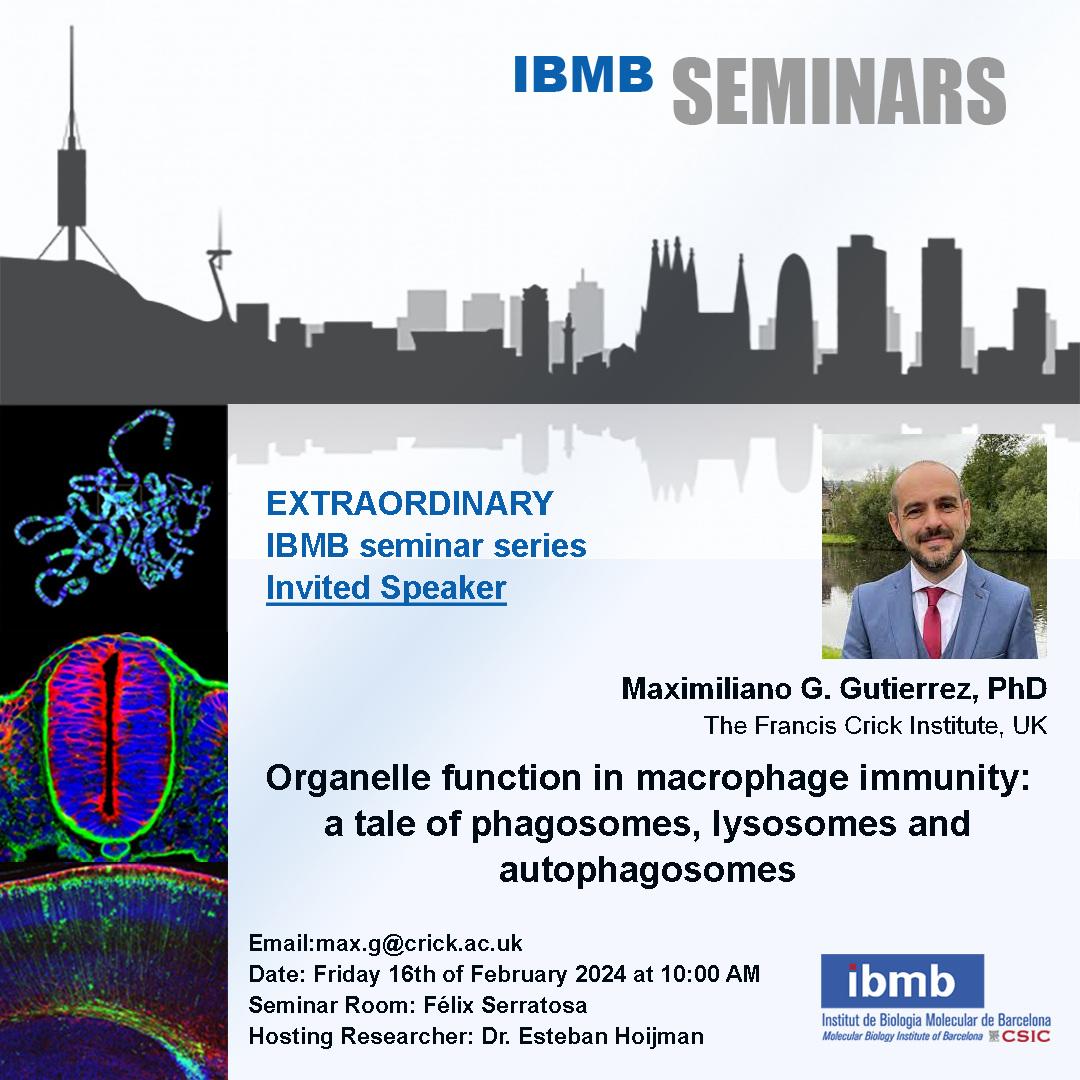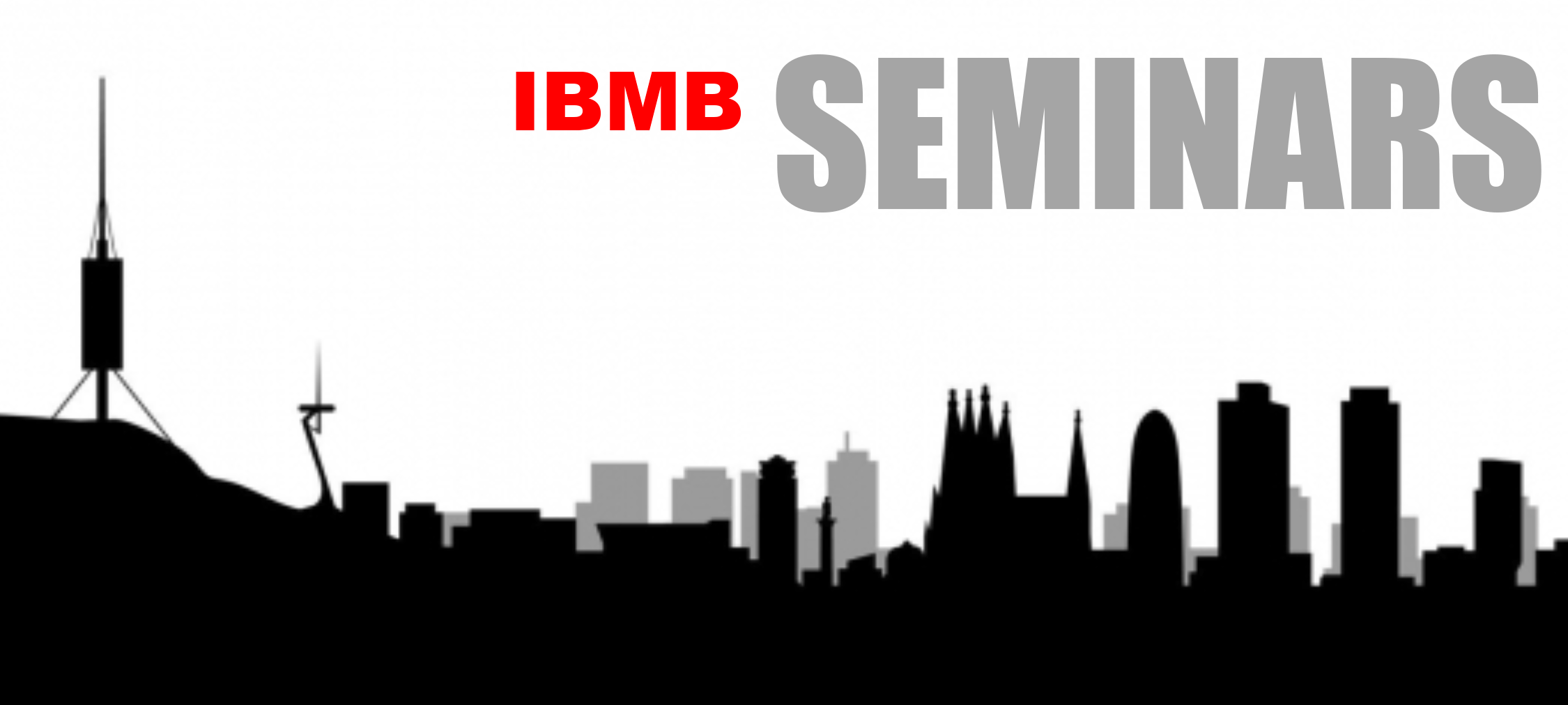Date: Friday, April 12th | Felix Serratosa room | 12|04|2024 Time: 10:00 AM Speaker: Valerio Di Domenico Guerin…
EXTRAORDINARY IBMB SEMINAR, Friday, February 16th 10:00 AM | Maximiliano G. Gutierrez, PhD
Date: Friday, February 16th | Serratosa | 16|2|2024
Time: 10:00 AM
Speaker: Maximiliano G. Gutierrez
PhD,
The Francis Crick Institute, UK
Title: “Organelle function in macrophage immunity: a tale of phagosomes, lysosomes and
autophagosomes“
Seminar Room: Serratosa
Email: max.g@crick.ac.uk
Short bio Maximiliano Gutierrez
Max is a cell biologist originally from Mendoza, Argentina. In 2005, he obtained a PhD in cell biology from the University of San Luis, Argentina. During his PhD work, he discovered a novel innate immune pathway, later named “Xenophagy”. After a postdoctoral stay at EMBL in Heidelberg, Germany, he started his independent research group at the Helmholtz Centre for Infection Research in Braunschweig, Germany as head of the Junior Research Group ‘Phagosome Biology’. In 2012, he was recruited as a Programme Leader Track at the Medical Research Council’s National Institute for Medical Research, which became part of the Francis Crick Institute in 2015. Since 2018, he is a Principal Group Leader at the Francis Crick Institute. As a cell biologist trained in microbiology, how intracellular pathogens evolved strategies to survive within host cells has always fascinated him and clearly shaped his scientific career. His long-standing interest is the cellular mechanisms that regulate the interactions between Mycobacterium tuberculosis and host cells. He aims to better understand the host cell factors that contribute to M. tuberculosis control as well as the M. tuberculosis factors that this pathogen uses to highjack host cells. To this end, his lab is developing a variety of cutting-edge imaging technologies in high containment combined with various human model systems and approaches at the single cell level.
Summary
To cause disease and disseminate to other hosts, M. tuberculosis needs to replicate within human cells. Work in the last decades have shed light into some aspects of tuberculosis pathogenesis, however, we still do not understand how M. tuberculosis manages to survive within eukaryotic cells and why some cells are able to eradicate this lethal pathogen. This surprising gap in knowledge is in part due to the lack of appropriate imaging technologies that have precluded comprehensive understanding of the fundamental cell biology that underpins M. tuberculosis-host cell interactions. Our research focuses on the fundamental molecular and cellular mechanisms that regulate the interactions between M. tuberculosis and host cells. We aim to dissect the host cell factors that contribute to M. tuberculosis control as well as the M. tuberculosis factors that this pathogen uses to highjack host cells. To this end, we develop and use a variety of cutting-edge imaging approaches and model systems. In this seminar, I will present some recent data from our group regarding the function of macrophage organelles in the immune response, during endomembrane damage and repair.


